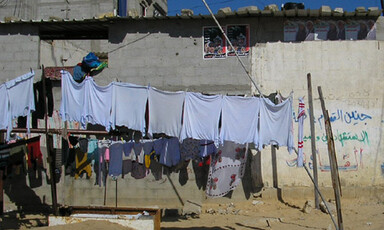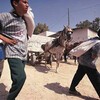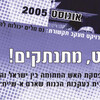
Gazans cautious, but eager for pullout
16 August 2005
At the edge of the Khan Yunus refugee camp in the southern Gaza Strip, crumbling refugee homes face off with the red-roofed seafront villas of the Neve Dekalim settlement. The settlement, one of 21 chosen for evacuation in coming months, has been the source of much grief - and now speculation - for Palestinians here. Abo Ahmed’s home stands directly across from Neve Dekalim, the largest and most ideologically extreme of the Gush Katif settlements, a bloc established in 1970 - three years after Gaza was captured and occupied by Israel. Not far from the settlement is an Israeli sniper tower, stationed along with hundreds of soldiers, to protect the illegal settlers from their Palestinian neighbours and original inhabitants of the land. Read more about Gazans cautious, but eager for pullout








